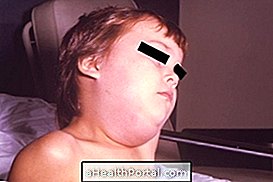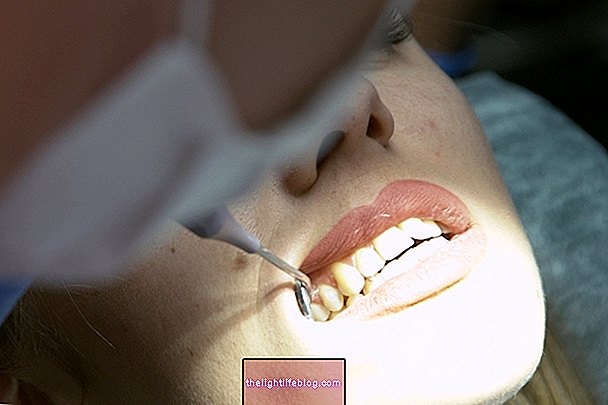Herniated disc during pregnancy can cause severe back pain that can radiate to the buttocks and leg, caused tingling and impaired quality of life, requiring medical help. The doctor may prescribe the use of analgesic, anti-inflammatory, or a corticosteroid injection to control pain, but physical therapy with hot compresses, stretching, and spinal traction may also be indicated.
In addition, osteopathy is also a great ally because it can realign structures such as muscles, tendons and the organs themselves, bringing immediate pain relief without the use of medicines. Acupuncture is another alternative because it rebalances the body's energies, combats pain and inflammation bringing relief from symptoms.


Symptoms of herniated disc in pregnancy
Symptoms of herniated disc during pregnancy may be more intense and the woman may present:
- Intense back pain that can radiate to the buttock or to one of the legs;
- There may be a feeling of pinching, tingling, or numbness in the back, buttock, groin, or leg.
As these symptoms can also happen when the sciatic nerve is affected, not always the doctor can come to the conclusion that it is a herniated disc without any exams. The ideal would be to perform MRI and X-ray but these tests should not be performed during pregnancy.
Treatments for Herniated Disc in Pregnancy
Learn more details of each treatment option:
Medicines
During pregnancy a woman should not take medication without being advised by the doctor because many pass on to the baby. In case of mild pain, which does not give up with rest and warm compresses, Paracetamol can be used, with maximum daily dose of 1g, Ibuprofen and Tramadol can also be used, but only with medical indication.
When this is not enough for pain control, your doctor may recommend a corticosteroid injection, which normally eliminates pain completely, but should only be given in severe cases where back and leg pain is very severe.
Physiotherapy
It is possible to control pain through features like hot compresses and stretches that should be performed with the help of the physical therapist, so as not to aggravate the pain. Resting on the side with a pillow between the legs is also recommended in times of pain.
Massage is not always indicated because certain points in the spine can help stimulate labor, and equipment normally used in physical therapy is contraindicated during pregnancy. The physical therapist can also put on adhesive strips to help hold the belly better, which brings relief from the pain. See more strategies.
Out of moments of crisis, Clinical Pilates exercises are another great way to keep your spine muscles firm and help prevent a new crisis.
Check out some stretching exercises that can be indicated.
Osteopathy
Osteopathy is a type of treatment in which twists in the joints, including the spine, are performed that trigger states that help release the energy accumulated within these joints, bringing relief and greater possibility of movement. In some cases repositioning the organs such as the liver also helps to combat pain, bringing great relief from the symptoms. The sessions are performed with the osteopath, about once a week.
Acupuncture
Acupuncture is also a good choice for times of mild to moderate pain. It helps to deflate the structures and balance the energies of the body so that it flows better, which usually brings relief from the pain, without problems for the baby.

Risks of disc herniation during pregnancy
Not all women with a herniated disc will experience a time of crisis during pregnancy, because the relaxin hormone, present because of pregnancy, makes the tendons and ligaments more flexible, which may be enough to avoid strong back pain in the pregnancy.
However, in more severe cases, when the woman has more than one herniated disc, of the extruded or sequestered type, a herniated disc crisis may be so strong that it causes many disorders. The woman may get 'caught' and have difficulty moving around, wearing a high shoe or holding an older child in her lap, for example.
However, there is no absolute risk related to the baby, but as the baby feels everything the mother feels, even though she does not feel her pain, she may be exposed to more cortisol, which can make her more agitated. some research shows that there is a greater risk of attention deficit hyperactivity disorder, anxiety, and speech delay in children of stressed women during gestation.
How is the delivery of the pregnant woman with herniated disc
In case of herniated disc during pregnancy the delivery should be discussed with the obstetrician because there is no indication or absolute contraindication for cesarean or normal delivery. Usually when a woman is not in crisis in the last month of pregnancy, it is possible to have a normal delivery, but even if she has had a crisis in the last few weeks or a crisis begins during labor, epidural anesthesia can completely eliminate the pain.
Know the differences and know why choose normal delivery or cesarean.
How to protect yourself
Some good advice for women who have a herniated disc, avoid a pregnancy crisis, are:
- Avoid making great efforts, respecting the limits of the body and taking advantage of the help of the companions or other people who can help;
- Do not wear high heels daily, preferring shoes with a maximum of 3 cm in height and very comfortable;
- When lifting objects off the ground, always crouch first, rather than leaning forward;
- Before getting pregnant the woman can do Clinical Pilates to strengthen the back, improve posture and gain more flexibility.
Another important care is to avoid excessive weight gain during pregnancy because this further aggravates the lordosis of the spine, contributing to worsening symptoms. Thus, the pregnant woman should not gain more than 10 kg during pregnancy.

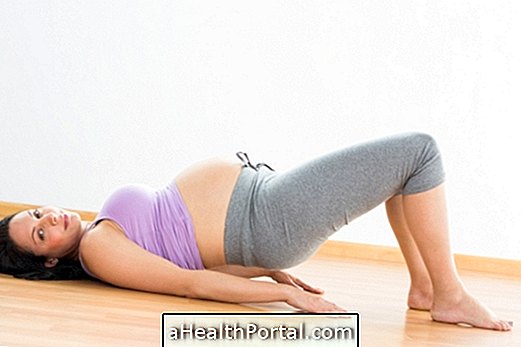
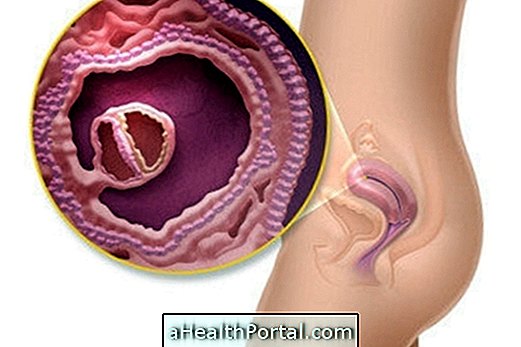
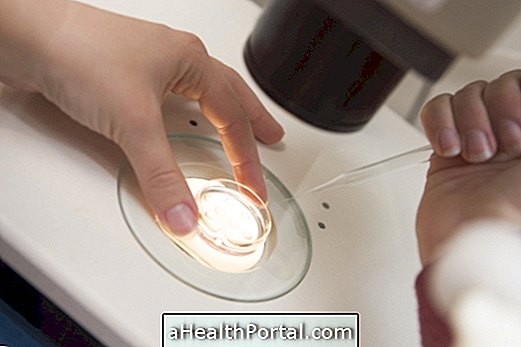






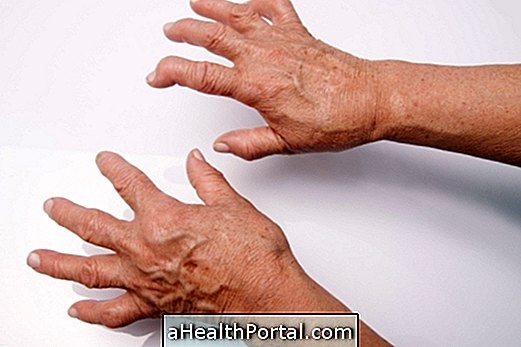
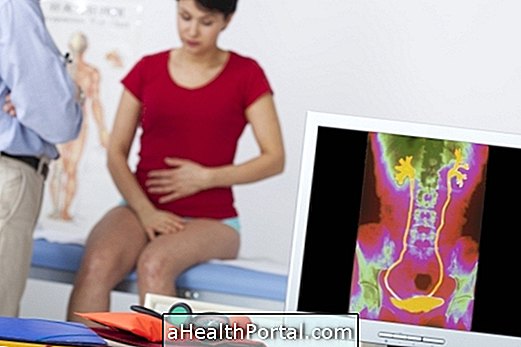




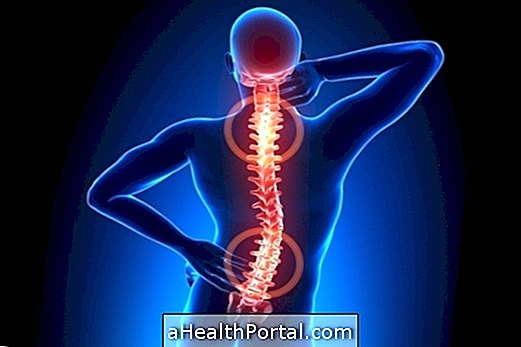
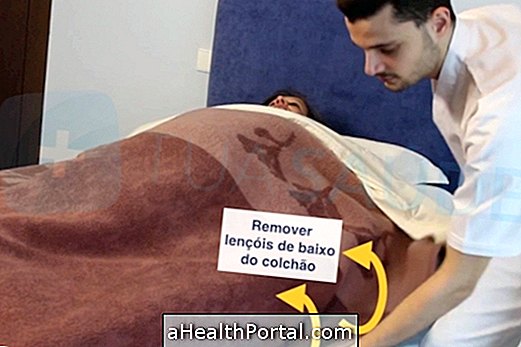
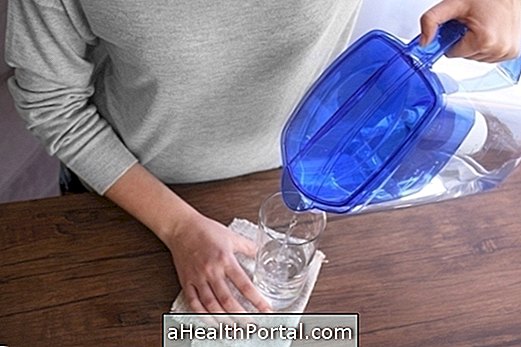
.png)

